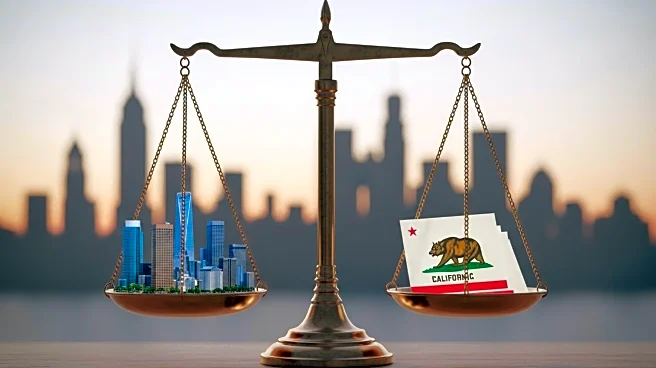What is the story about?
What's Happening?
New York and California have enacted laws that empower state agencies to handle private-sector union cases traditionally overseen by the National Labor Relations Board (NLRB). These laws assert state jurisdiction over union representation elections and unfair labor practice charges, potentially applying different statutory language and administrative processes. The move comes amid uncertainty at the NLRB, which lacks a quorum and faces legal challenges over its structure. The state laws risk creating a patchwork of labor regulations, diverging from the federal framework established by the National Labor Relations Act of 1935. Legal challenges have already been filed against New York's law, with the NLRB and Amazon arguing that federal law should preempt state jurisdiction.
Why It's Important?
The enactment of these state laws represents a significant shift in labor relations, potentially altering the landscape for businesses and unions. If the laws withstand legal challenges, they could lead to varying interpretations of labor disputes across states, complicating compliance for employers operating in multiple jurisdictions. The move reflects a broader trend of states asserting authority over labor matters, which could impact the balance of power between state and federal governments. The legal challenges and potential preemption issues highlight the complexities of labor law and the ongoing debate over the role of state versus federal oversight in labor relations.
What's Next?
The legal challenges against New York and California's labor laws are likely to continue, with courts determining whether state jurisdiction can coexist with federal oversight. The outcome of these cases will have implications for the future of labor relations in the U.S., potentially influencing other states to enact similar laws. Businesses and unions will need to navigate the evolving regulatory landscape, adapting to new state-level processes for handling labor disputes. The situation may also prompt discussions on the need for federal reforms to address the NLRB's current challenges and ensure consistent labor protections nationwide.

















